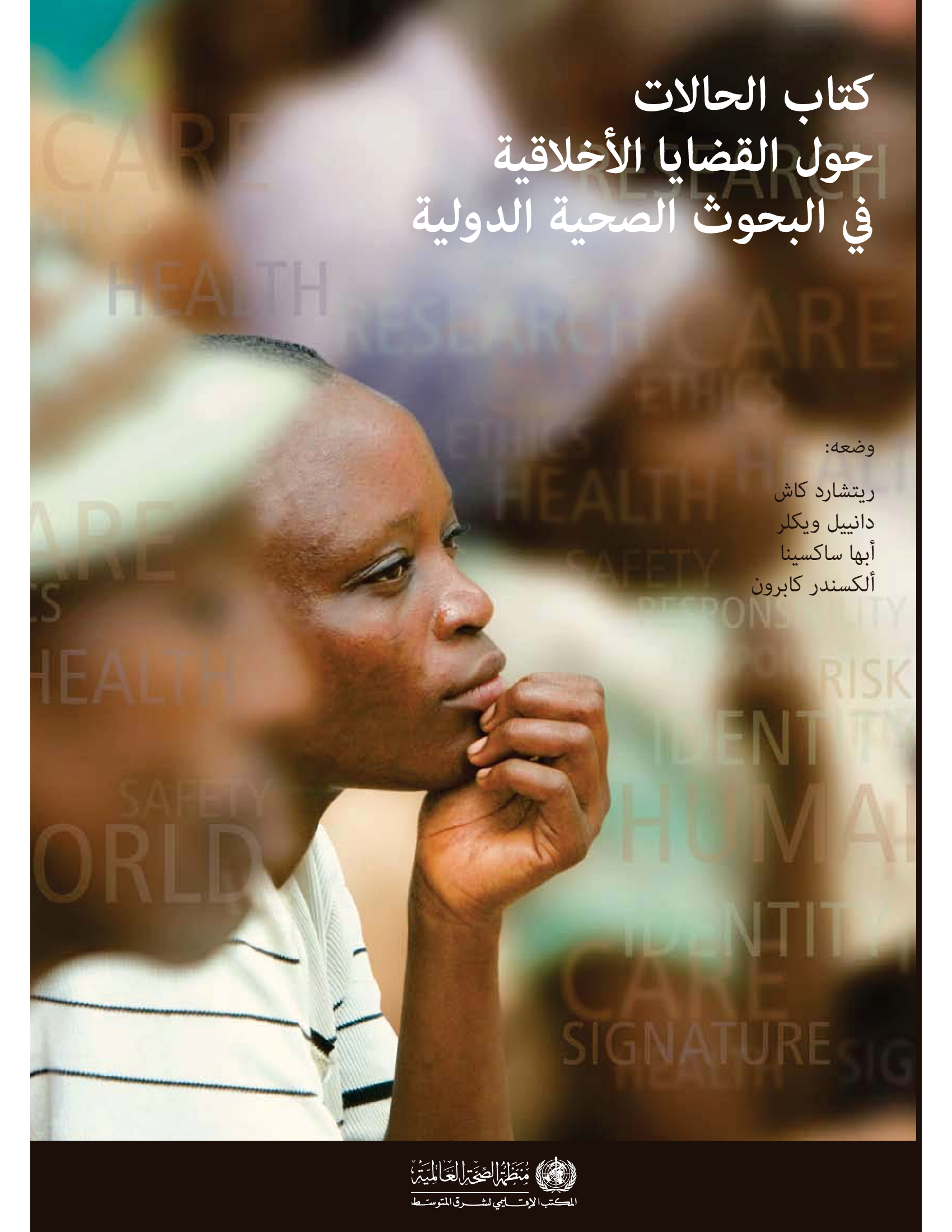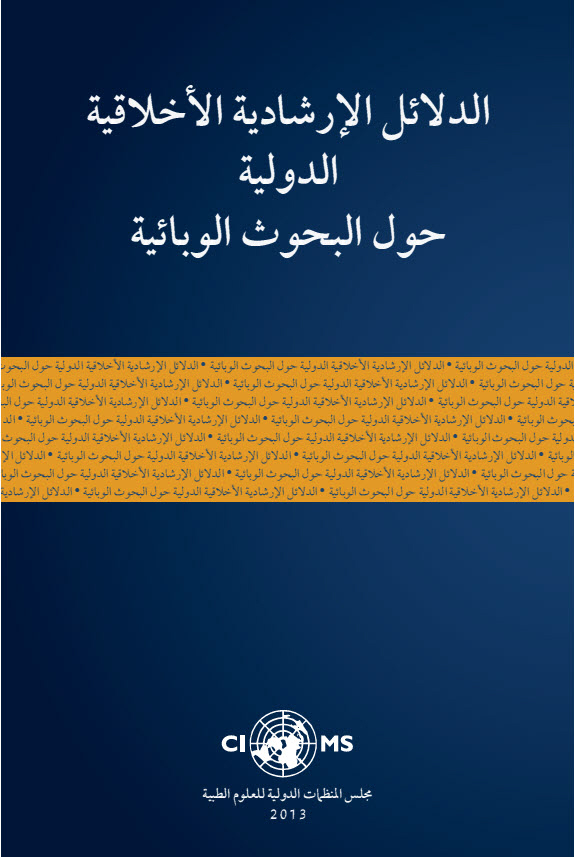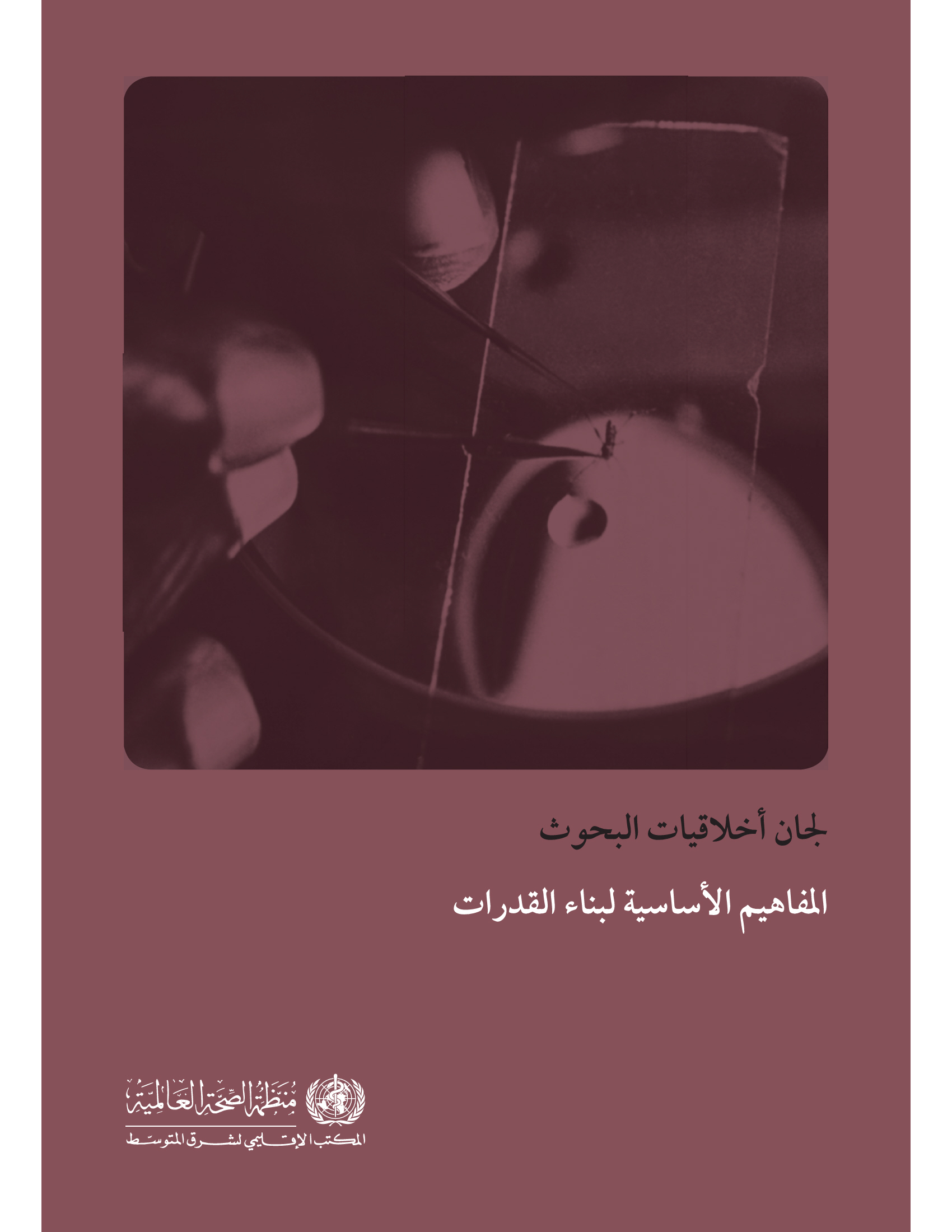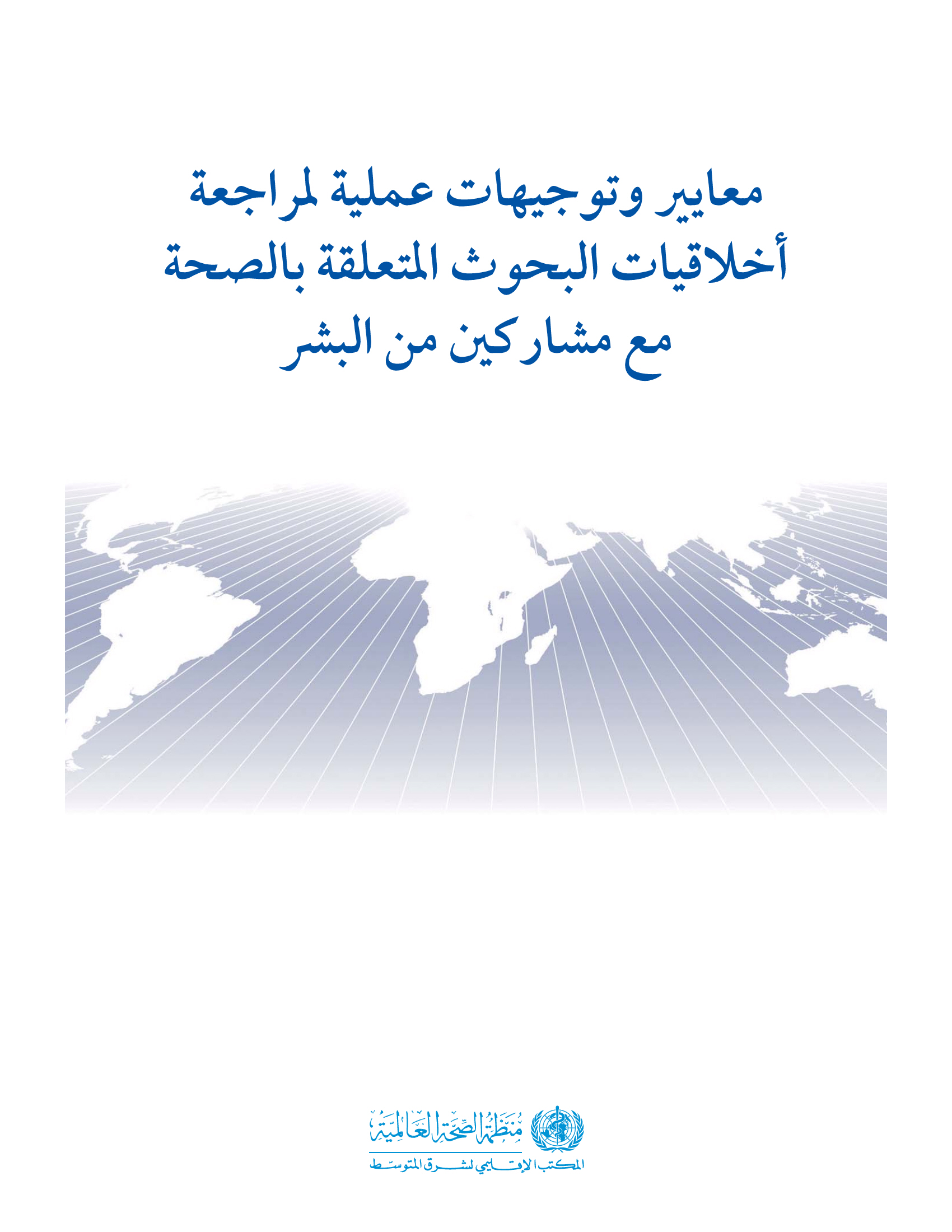In its continued efforts to promote the ethical conduct of research involving human participants in the Region (EM/RC58/R.3), the WHO Regional Office for the Eastern Mediterranean is translating key ethics documents into Arabic.
This publication highlights the importance of a systems approach to research ethics, and includes and delineates the role of national governments and relevant legal and regulatory authorities. It is a compilation of 10 standards that are applicable to the ethics review of health related research with human participants, intended to provide guidance on the research ethics review process. It is not intended to take a substantive position on how particular ethical dilemmas in health-related research should be resolved. It is designed to serve as a basis upon which Research Ethics Committees (RECs) can develop their own specific practices and written procedures, and benchmark their achievements.
Casebook on ethical issues in international health research [pdf 2.23 Mb]
This casebook collects 64 case studies, each of which raises an important and difficult ethical issue connected with planning, reviewing, or conducting health-related research. The book’s purpose is to contribute to thoughtful analysis of these issues by researchers and members of research ethics committees (RECs, known in some places as ethical review committees or institutional review boards), health authorities, and others; particularly those involved with studies that are conducted or sponsored internationally. The casebook is set up to provide cases – based on actual research studies – which can be read by individuals or discussed in group settings. Thinking one’s way through the problems raised by such case studies has been shown both to be an extremely effective means of learning to understand and apply general ethical principles and to provide good preparation for dealing with the real world of health research.
International ethical guidelines for epidemiological studies - Arabic [pdf 758kb] 
The Guidelines draw the attention of investigators, sponsors, and ethical review committees to the need to consider carefully the ethical implications of research protocols and the manner in which research is conducted, thus ensuring that studies conform with high scientific and ethical standards in epidemiological research. The original English version was published by the Council for International Organizations of Medical Sciences in 2009.
Research ethics committees : basic concepts for capacity-building [pdf 4.39 Mb] 
This manual is intended to help research ethics committees in low-income and middle-income countries to design training programmes for ethics committee members, researchers, national regulatory authorities, medical school faculty and other interested stakeholders from health care and research. The material covered in the manual is presented as a starting-point for a basic research ethics training programme, designed to draw attention to critical issues, without necessarily resolving them. They are not intended to be an exhaustive summary of all issues in research ethics. The manual contains six introductory chapters on general topics : the role of research ethics committees, ethical analysis, training programmes, evaluation of risks and benefits, confidentiality and informed consent, with annexes covering financial conflicts of interest in medical research and international guidelines and regulations.



